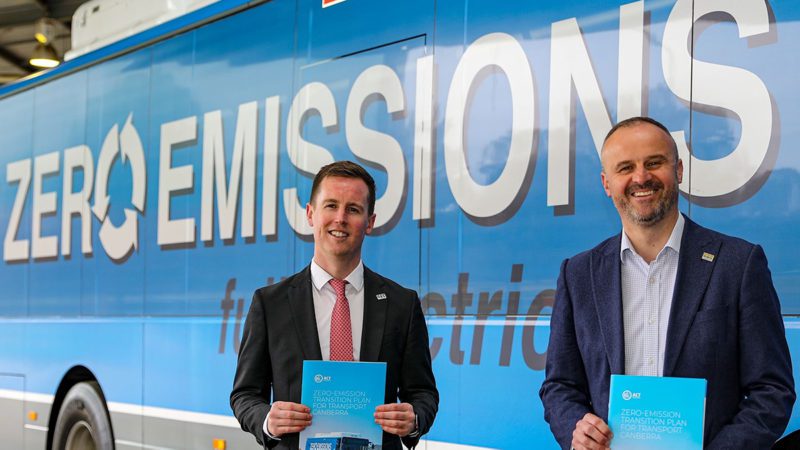The ACT government has received more than 100 expressions of interests from a range of suppliers in response to a call for proposals to deliver the ACT government’s plan to purchase up to 90 electric buses.
The strong response highlights the surging interest in the local production of electric vehicles, and the growing number of businesses looking to meet demand from governments planning to switch fleets to electric models.
ACT transport minister Chris Steel welcomed the strong interest in the ACT government’s electric bus fleet plans, after receiving proposals for the supply of buses as well as supporting infrastructure, including new charging stations and the construction of a new bus terminal.
“The procurement of new battery electric buses has attracted wide interest and gives us confidence of getting the right solution to successfully transition our fleet to zero emissions,” Steel said.
“Industry briefings will include information about our requirements not only to procure the first 90 battery electric buses, but also the associated charging infrastructure and essential training packages required to upskill our workforce to the new technology.”
The ACT government issued a call for expressions of interest after the Labor-Greens alliance was successfully re-elected at an October poll. The parties agreed to source at least 90 new electric buses, to join the territory’s public transport bus fleet.
Steel said that the proposals should see new skills and training delivered to workers in the ACT, with training for the maintenance and repair of the new bus fleet to be included as part of the wider procurement of the 90 electric buses.
“Key to this transition and our city’s economic recovery is the delivery of a comprehensive skills and training package for our workforce including bus drivers, transport managers and diesel mechanics,” Steel said.
“A zero emissions transition of our bus fleet the ACT is further cementing its place as one of the leading jurisdictions to take strong effective and real action on climate change whilst improving transport experience for passengers.”
The purchase of the electric buses is part of an effort by the ACT government to reduce its greenhouse gas emissions, and those of the transport sector in the national capital.
“We expect that the first of 90 battery electric buses will help to reduce the fleet’s emissions by over 20 per cent, or around 7000 tonnes of CO2 a year,” Steel said.
“The formal procurement process will commence in the third quarter of 2021 with the final buses delivered no later than 2024.”
While the ACT government was unable to disclose which companies have entered expressions of interest, it almost certainly included a number of companies looking to establish electric vehicle manufacturing and assembly operations in Australia.
Australian based TrueGreen has already said that it hopes to deliver electric buses to both the ACT and NSW governments as it invests in its electric bus subsidiary Nexport.
Nexport is set to invest $700 million establishing manufacturing facilities in the New South Wales Southern Highlands, mid way between Canberra and Sydney, attracted by the NSW government’s own plans to switch the 9,000 strong Sydney bus fleet onto electric buses.


